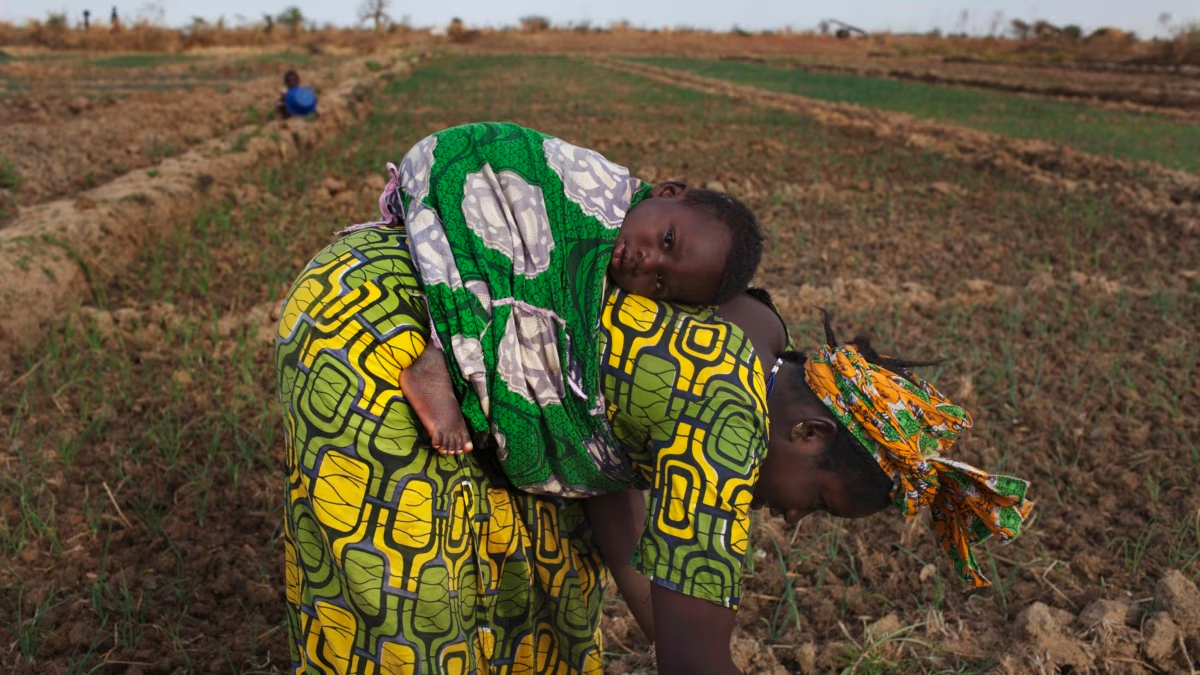Many small-scale farmers across Africa face the threat from “failed seasons”,

Many small-scale farmers across Africa face the threat from “failed seasons”, a report has warned.
The 2014 African Agriculture Status Report says the vital food producers face a risk of being overwhelmed by the pace and severity of climate change.
The authors called for the adoption of “climate-smart agriculture” that will help make crops more resilient to future extreme weather events.
The findings were presented at a major conference in Ethiopia.
“In order for our farmers to be productive and ensure food security, we need to build resilience to help them mitigate the onset of climate change,” observed report editor David Sarfo Ameyaw.
“The climate variations, droughts or rainfalls, are something that small-holding farmers are facing and are going to face.
“Climate change is a fact that is facing us whether we accept it or not, especially here in Africa.”
Dr Ameyaw, director of strategy monitoring and evaluation for the Alliance for a Green Revolution in Africa (AGRA), said that “failed season” posed a real threat for food security in Africa.
“We are talking about when the rain does not come at the right time or the length of the [growing] season, which should be about 180 days, is shortened as a result of drought,” he told BBC News.
The report warned that changes to the climate could result in the number of malnourished people in sub-Saharan Africa increasing by 40% by 2050 – from 223 million people to 355 million people.
‘Climate-smart’ farming
Dr Ameyaw added that helping small-scale farmers adopt “climate-smart” farming techniques would “prepare the for even more serious challenges in the future”.
“An important factor of good land management is the effective and efficiency use of water – groundwater, surface water and rainwater,” he said.
“When we talk about small-holding farming in Africa, we are talking about a system in which 98% depend on rainfall.
“Therefore, in order to build a climate-smart system, we need to find a way to preserve the water via rain harvesting etc.
“What we need to help farmers do is to be able to adopt good land management practices and improve seed stocks, with drought-resistant varieties.”
A recent scientific workshop in Morocco heard how researchers were developing mathematical models to identify genetic material that could help improve food crops’ resilience to the impacts of climate change, such as drought, pests and diseases.
The scientists hoped the models would speed up the process of identifying traits, such as drought resistance, allowing breeders to grow climate-proof crops.
Dr Ameyaw warned: “Whether we like it or not, climate change is a phenomenon the continent is facing. So we have proposed five things that we would like policymakers to address.
The five areas where the AGRA report authors wanted action were:
1.Climate smart agriculture
2.Strengthen national and local institutions
3.Build the technical and knowledge infrastructure for sustainable farming
4.Improve financial investment in agriculture
5.Improve access for “innovative” private investors, such as microfinance
The findings were presented to the African Green Revolution Forum, being held in Addis Ababa, which is focusing on delivering agriculture-led economic growth in sub-Saharan Africa.















Leave a Reply